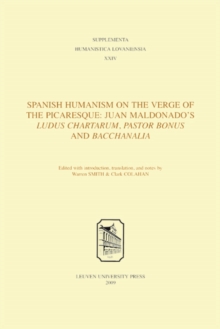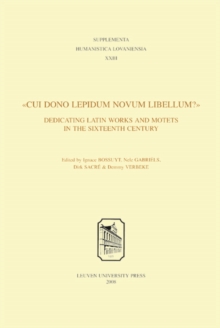
John Milton, Epistolarum Familiarium Liber Unus and Uncollected Letters : Edited with Introduction, Translation, and Commentary PDF
Edited by Haan Estelle Haan
Part of the Supplementa Humanistica Lovaniensia series
Description
Firstfull-scale edition of John Milton’s Latin and uncollected vernacular letters
John Milton holds animpressive place within the rich tradition of neo-Latin epistolography. His Epistolae Familiares and uncollectedletters paint an invigorating portrait of the artist as a young man, offeringinsight into his reading programme, his views on education, friendship, poetry,his relations with continental literati, his blindness, and his role as LatinSecretary. This edition presents a modernised Latin text and a facing Englishtranslation, complemented by a detailed introduction and a comprehensive commentary. Situating Milton’s letters in relation to the classical, pedagogical,neo-Latin, and vernacular contexts at the heart of their composition, itpresents fresh evidence in regard to Milton’s relationships with the Italianphilologist Benedetto Buonmattei, the Greek humanist Leonard Philaras, theradical pastor Jean de Labadie, and the German diplomat Peter Heimbach. It alsoannounces several new discoveries, most notably a manuscript of HenryOldenburg’s transcription of Ep. Fam. 25. This volume fills an important gap in Milton scholarship, and will prove ofparticular use to Milton scholars, students, philologists, neo-Latinists, andthose interested in the humanist reinvention of the epistolographic tradition.
Information
-
Download - Immediately Available
- Format:PDF
- Pages:578 pages
- Publisher:Universitaire Pers Leuven
- Publication Date:14/10/2019
- Category:
- ISBN:9789461662958
Information
-
Download - Immediately Available
- Format:PDF
- Pages:578 pages
- Publisher:Universitaire Pers Leuven
- Publication Date:14/10/2019
- Category:
- ISBN:9789461662958










